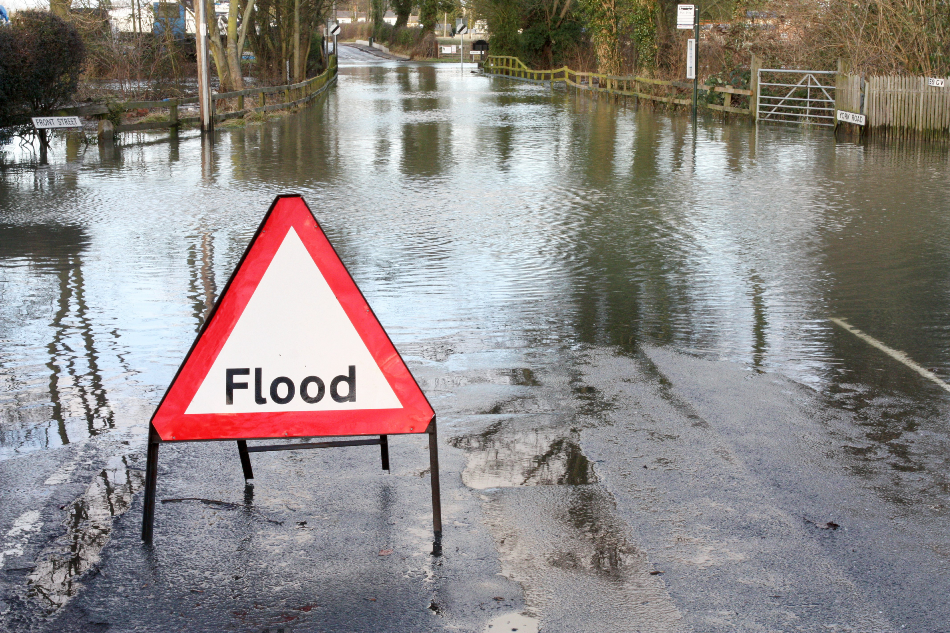
Image Credit: northallertonman / Shutterstock.com
2020 has seen one of the wettest Februarys in the UK since records began in 1862. A total of three extreme rainfall events hit the country in the second month of the year, causing experts and the general population to feel raising concern over the increasingly severe impacts of climate change.
Storms Delivering 237% of February’s Average Rainfall
In February, the three storms of Ciara, Dennis, and Jorge delivered huge amounts of rainfall across the UK. This resulted in average rainfall over the month of 209.1 mm, which is 237% greater than the average rainfall received in February between 1981 and 2010.
The storms came close to breaking rainfall records, with storm Dennis delivering the second-highest daily total in the country since records began in 1891. In addition, storms Ciara and Jorge together delivered enough rain to put them into the top 0.5% of wet days in terms of average rainfall in the UK.
This sort of weather is seemingly becoming more commonplace in the UK, with residents and experts alike feeling aware of the increasingly extreme weather, and attributing it as a result of climate change.
Extreme Weather Attributed to Climate Change
Research conducted by the Met Office has suggested that the UK is at an elevated risk of experiencing extreme rainfall events now and into the future. The ground-breaking research also suggests that this extreme weather is being caused by climate change, which is making extreme weather less of a rarity.
It’s not only experts who are becoming increasingly concerned over the effects of climate change on UK weather. A recent study conducted by Cardiff University, in Wales, collected data from 1,401 nationally representative respondents and found that the effects of climate change were of growing concern for the general public.
Data reveals that climate change is perceived as the, "most pressing issue facing the UK,” by around 23% of the public, making it the second greatest concern perceived as facing the UK now and over the next two decades, with Brexit taking first place amongst the worries of those included sample.
This concern over climate change had doubled since 2016, with 40% of people now responding that they were, "very or extremely worried,” about it, representing twice as many people who responded the same in 2016.
In addition, levels of climate skepticism had fallen, with 64% of the recent sample reporting that they believed the UK was already being subjected to the impacts of climate change, an increase of 23% since a 2010 study.
Experts are not surprised that concern over climate change has grown due to the increasing media coverage on the topic. However, they are surprised that the recent survey has revealed that people’s attitudes towards climate risks have radically changed, with heatwaves and warming being taken more seriously.
A Movement Towards Greater Environmental Awareness
The growing concern over climate change represents a shift in public awareness of the environment, and our impact on it. For many years a wealth of scientific evidence has been building that suggests that climate risks are becoming increasingly severe and more likely. Now, the public is also adopting this view, as the effects of climate change become relevant to their daily lives.
The three storms that hit the country during February resulted in thousands of homes across the regions of Yorkshire, Wales and the West Midlands being flooded. The nation’s flood defenses were tested, and while more than 80,000 homes were protected, many suffered personal tragedies as their homes were destroyed by floodwaters.
Data shows that a major flood has hit the UK each year since 2007. This has led the UK to continue to prepare to protect the population from future extreme weather. Between 2015 and 2018, 493 projects were completed to protect homes from flooding and coastal erosion. From 2019 to 2021 a further 499 similar projects will be completed.
Disclaimer: The views expressed here are those of the author expressed in their private capacity and do not necessarily represent the views of AZoM.com Limited T/A AZoNetwork the owner and operator of this website. This disclaimer forms part of the Terms and conditions of use of this website.